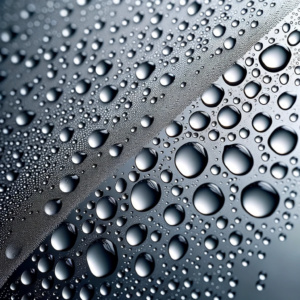Revolutionizing Clarity: The Marvel of Nano Coating for Glass
Glass, with its transparency and versatility, is a ubiquitous material used in countless applications, from windows and windshields to electronic screens and eyeglasses. However, glass surfaces are not immune to the challenges of stains, scratches, and environmental wear. In response to these challenges, the development of nano coating for glass has emerged as a transformative solution. These coatings, harnessing the power of advanced nanotechnology, offer remarkable benefits, from improved clarity and durability to enhanced resistance against environmental elements. In this article, we will delve into the science behind nano coating for glass, explore its diverse applications, and discuss the significant impact it has on various industries.
The Science Behind Nano Coating for Glass
Nano coatings for glass are not ordinary protective treatments. They are born from the intricate world of nanotechnology, a field that revolves around manipulating materials at the nanoscale—measured in nanometers, one billionth of a meter—to achieve extraordinary properties. Nano coatings utilize nanoparticles that create an ultra-thin protective layer on the surface of glass. These nanoparticles are often made of silica or other hydrophobic materials, which provide exceptional water and oil repellency.
The key to the effectiveness of these coatings lies in their superhydrophobic and oleophobic properties. Superhydrophobic materials repel water, while oleophobic materials repel oil-based substances. When applied to glass, these nanoparticles create a microscopically rough surface, which, similar to the lotus leaf’s natural water-repellent properties, causes water droplets and oils to bead up and roll off the glass surface, preventing adhesion and staining.
Diverse Applications
The versatility of nano coating for glass has led to its integration into various industries, making a significant impact on the clarity and durability of glass surfaces:
-

Nano Coating for Glass Close up
Automotive Industry: In the automotive sector, these coatings are commonly used on windshields, windows, and rearview mirrors. They improve visibility during rainy weather, reduce water spots, and make cleaning easier.
- Consumer Electronics: Nano coatings can be found on electronic screens like smartphones, tablets, and televisions. They protect screens from moisture, fingerprints, and smudges, ensuring a clear and unobstructed view.
- Architectural Glass: In the construction industry, nano coatings are applied to glass facades, windows, and skylights. They provide protection against environmental elements, such as acid rain, dirt, and UV rays, enhancing the lifespan and aesthetics of architectural glass.
- Eyewear: Sunglasses, prescription eyeglasses, and safety goggles benefit from nano coatings that repel water, sweat, and smudges, ensuring clear vision and easy maintenance.
- Photovoltaic Panels: Solar panels with nano coatings resist dirt and dust accumulation, which can otherwise reduce energy efficiency. This technology keeps panels clean and maximizes energy production.
The Benefits of Nano Coating for Glass
The application of nano coating for glass brings a multitude of benefits to various industries and consumers:
- Improved Clarity: The primary advantage is the enhancement of optical clarity. Coated glass surfaces remain clear and unobstructed by water, oil, and dirt.
- Enhanced Durability: Coated glass is more resilient to environmental elements, preventing damage and wear from UV rays, acid rain, and scratches.
- Easy Cleaning: Coated glass surfaces are easier to clean, requiring less effort and fewer cleaning products.
- Energy Efficiency: In architectural applications, coated glass helps regulate indoor temperature by reducing solar heat gain, contributing to energy savings.
- Safety and Visibility: In automotive applications, nano coatings improve visibility during adverse weather conditions, enhancing safety for drivers and passengers.
Caring for Coated Glass
To ensure the longevity and continued effectiveness of nano coatings for glass, it’s crucial to follow proper care and maintenance guidelines:
- Gentle Cleaning: Use mild detergents and soft materials when cleaning coated glass surfaces to prevent damage.
- Regular Maintenance: Depending on the level of wear, consider periodic reapplication to maintain the glass’s water and oil repellent properties.
- Manufacturer Instructions: Always adhere to the care and maintenance instructions provided by the manufacturer for specific glass coatings.
In conclusion, nano coating for glass represents a significant leap in the world of materials and nanotechnology. These coatings have transformed various industries by providing remarkable clarity, durability, and resistance to environmental elements. As technology continues to advance, we can expect even more innovative applications and further refinements in nano coating for glass, ushering in a future where glass surfaces remain crystal clear and resilient in the face of environmental challenges.
Have any questions or share your expertise for Nano Coating for Glass
Join the conversation!



Plaats een Reactie
Meepraten?Draag gerust bij!